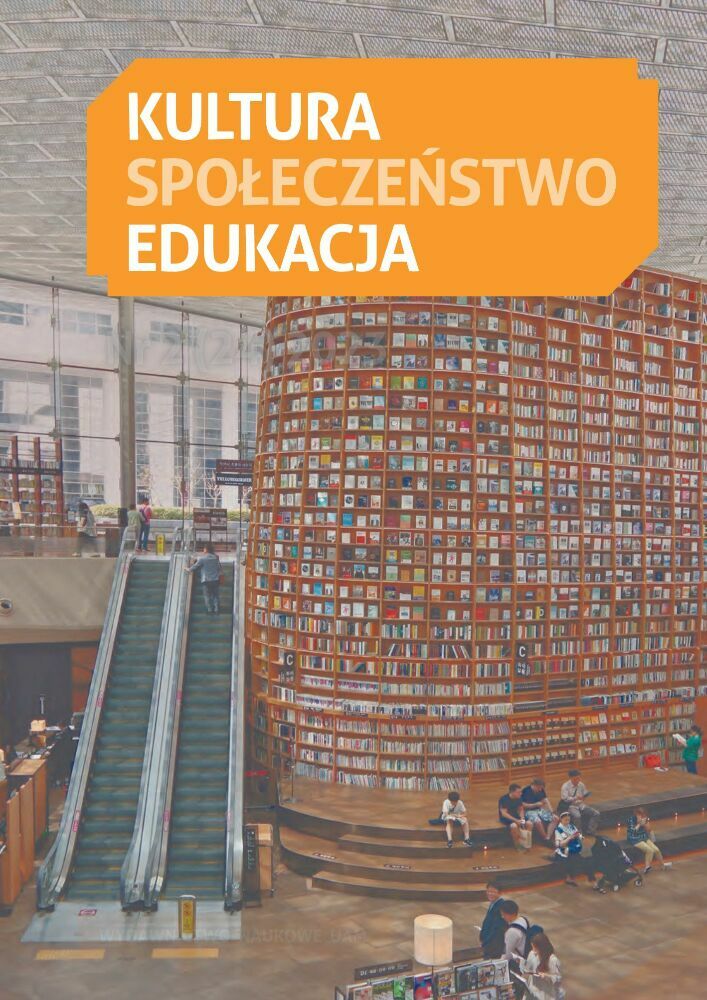Abstract
The main purpose of writing this article was to present the elements of mathematical culture that are currently available to visitors of science centers in the form of interactive exhibitions. The following text describes mathematical knowledge, mathematical activities and the application of mathematics in other fields of knowledge and life. Mathematical exhibits are elements of didactic culture. It can be assumed that they are carriers of specific meanings created by visitors to science centers and visitors to the exhibitions. The analyzes undertaken in the text made it possible to identify certain categories of the studied elements of mathematical culture. The study was carried out in two science centers in Poland, using a qualitative strategy, analyzing documents. The author conducted similar research before the pandemic in museums and science centers in Germany. This article presents the results for three elements of culture. In the future, the study will also cover mathematical exhibits/exhibitions from other science centers in European countries that began to function again in a renewed form after the pandemic.
References
Boaler, J. (2016). Mathematical mindsets: Unleashing students’ potential through creative math, inspiring messages and innovative teaching (mindset mathematics). Jossey-Bass.
Bojarska-Sokołowska, A. (2019). Pozaszkolne formy edukacji matematycznej. Popularyzacja matematyki, interaktywność w kształceniu, kultura matematyczna. Wydawnictwo Uniwersytetu Warmińsko-Mazurskiego w Olsztynie. Centrum Nauki Kopernik. https://www.kopernik.org.pl
Crilly, T. (2022). Matematyka. 50 idei, które powinieneś znać (W. Bartol, tłum.). Wydawnictwo Naukowe PWN.
Davis, P.J., Hersh, R., Marchisotto, E.A. (2001). Świat matematyki (R. Duda, tłum.). Wydawnictwo Naukowe PWN.
Domoradzki, S. (b.d.). Różne sposoby wspomagania twórczości matematycznej uczniów dzisiaj i w przyszłości. ORE. Pobrane 25 lipca 2023 z: https://zasobyip2.ore.edu.pl/pl/publications/download/4322
Duda, R. (1990). Co to jest kultura matematyka? Matematyka. Społeczeństwo. Nauczanie, (5), 2–4. ExploraPark – Centrum Aktywnej Edukacji. https://explorapark.pl
Flick, U. (2012). Projektowanie badania jakościowego (P. Tomanek, tłum.). Wydawnictwo Naukowe PWN.
Heinze, A. (2005). Mistake-handling activities in German mathematics classroom. W: H.L. Chick, J.L. Vincent (red.), Proceedings of the 29th Conference of the International Group for the Psychology of Mathematics Education (t. 3, s. 105–112). University of Melbourne.
Jeleński, S. (1968). Lilavati. Rozrywki matematyczne. WSiP.
Karwasz, G., Kruk, J. (2012). Idee i realizacje dydaktyki interaktywnej – wystawy, muzea i centra nauki. Wydawnictwo Naukowe UMK.
Kordos, M. (1995). Przedmowa. W: J. Górnicki, Okruchy matematyki (s. 7–10). Wydawnictwo Naukowe PWN.
Kordos, M. (2009). Zobaczyć to, czego nie widać, czyli kultura matematyczna w praktyce. Wydawnictwo Aksjomat.
Liebertz, Ch. (1988). Kunstdidaktische Aspekte in der Museumpädagogik. Entwicklung und Gegenwart. Deutscher Studien Verlag.
Luescher, A. (b.d.) Education of the senses: Hugo Kükelhaus’ empirical methodology. Pobrane 3 grudnia 2023 z: https://www.researchgate.net/publication/277275960_Education_of_the_Senses_Hugo_Kukelhaus%27_empirical_methodology
Makiewicz, M. (2010). Matematyka w obiektywie. Kultura matematyczna dla nauczycieli. Wydawnictwo Naukowe Uniwersytetu Szczecińskiego.
Makiewicz, M. (2011). Elementy kultury matematycznej w fotografii. Studenckie Koło Naukowe Młodych Dydaktyków Matematyki Uniwersytetu Szczecińskiego.
Mulawa, J. (2016). Magia matematyki. Ćwiczenia aktywne w nauczaniu… nie tylko matematyki. Instytut Badań Kompetencji w Wałbrzychu.
Pawlak, R.J. (1993). Minimum edukacji matematycznej przyszłych nauczyciel. Kultura matematyczna. Acta Universitatis Lodziensis. Folia Mathematica, 6, 57–66.
Rapley, T. (2013). Analiza konwersacji, dyskursu i dokumentów (A. Gąsior-Niemiec, tłum.). Wydawnictwo Naukowe PWN.
Rubacha, K. (2008). Metodologia badań nad edukacją. Wydawnictwa Akademickie i Profesjonalne.
Tocki, J. (2006). Struktura procesu kształcenia matematycznego (cz. 1). Wydawnictwo Uniwersytetu Rzeszowskiego.
Waliszewski, W. (red.). (1997). Encyklopedia szkolna. Matematyka. WSiP.
Włodarczyk, E. (2003). Kultura [hasło]. W: J. Pilch (red.), Encyklopedia pedagogiczna XXI wieku (t. 2, s. 960). Wydawnictwo Akademickie Żak.
License
Copyright (c) 2023 Agnieszka Bojarska-Sokołowska

This work is licensed under a Creative Commons Attribution-NoDerivatives 4.0 International License.

